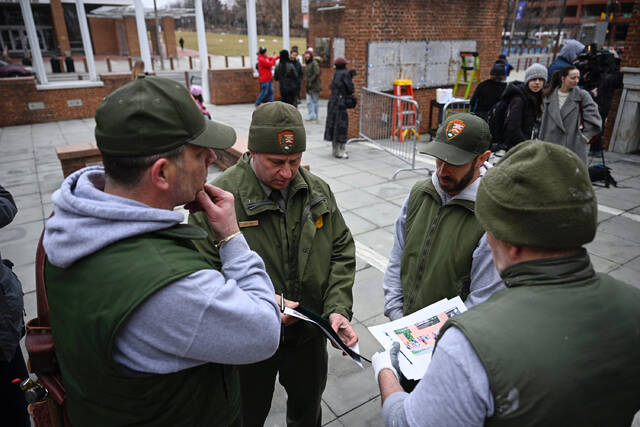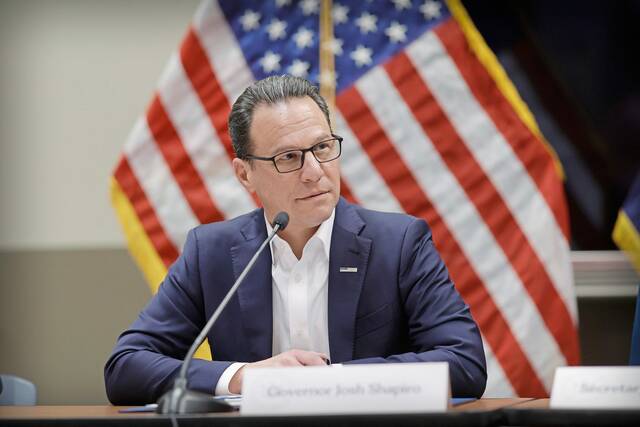The heat is on — and it’s getting hotter for election officials across Pennsylvania as the April 28 presidential primary approaches.
A new state election law that allows, among other things, no-excuse mail-in balloting 50 days before an election, coupled with the introduction of new voting machines in 22 counties, including Allegheny and Westmoreland, could prove the perfect storm this spring.
In letters posted Friday, a coalition of civil rights and voting integrity groups voiced concerns that some Pennsylvania voters could be disenfranchised if county election officials don’t act quickly to comply with provisions of the new law.
The new law that eliminated straight-ticket voting changed the deadline for voter registration from 30 to 15 days prior to an election and requires counties to establish a permanent mail-in and absentee ballot roster. Now, those who opt to be placed on the roster are to be mailed applications for ballots by the first Monday in February every year.
And those mail-in ballots? Well, they are supposed to be ready for distribution March 9, which is also the first day Pennsylvania voters may cast ballots for the April 28 primary.
No-excuse mail-in balloting expands what was one of the most restrictive absentee ballot laws in the nation. Previously, only those too sick to access the polls or those who would be out of the area on election day could apply for a mail-in ballot.
There also are provisions for counties to establish remote offices where election officials could disburse and accept mail-in and absentee ballots.
Whether that will happen here and just how local election officials will notify voters of all the pending changes remains unclear.
In Westmoreland County, Elections Director Beth Lechman said her office is focusing on programming the new $7.1 million touch screen/scanner voting system. Before the April primary will be a March 17 special election to fill the vacant seat of former state Rep. Justin Walsh, who is now a Common Pleas Court judge. Voters will cast ballots on a touch-screen machine that creates a paper ballot that is then fed into an electronic scanner.
Lechman said officials will begin focusing on the provisions of the new law this week.
“We’re just learning how to program the new equipment now,” Lechman said.
In Allegheny County, where voters at 900 polls will mark paper ballots and feed them into a scanner, the Board of Elections is scheduled to meet Feb. 11 to discuss its plans.
A spokeswoman for County Executive Rich Fitzgerald declined to comment on how the county will implement the law, saying officials there don’t want to put out information piecemeal.
Getting word out
Implementing the changes and meeting deadlines will be challenging.
A coalition — including All Voting is Local, the Lawyers Committee for Civil Rights Under the Law, the ACLU of Pennsylvania, Protect Democracy and the Campaign Legal Center — offered to assist county election officials in eight of the state’s largest counties, including Allegheny and Philadelphia, with messaging.
They suggested local officials notify voters of new deadlines before April 1, including by phone, text, email and USPS mail; publicize the new registrations deadline through public service announcements; and work with voting rights groups to ensure that election officials receive voter registration applications as soon as possible.
There’s little question that the changes will affect balloting.
Studies suggest the addition of no-excuse mail-in balloting, a practice now on the books in 31 states, could increase voter participation. A 2017 Election Assistance Commission study found voters increasingly took advantage of that option when it became available.
The number of people who voted early, absentee or by mail, more than doubled from 24.9 million in 2004 to 57.2 million in 2016, an increase from 20% to 40% of all ballots cast.
The new law also allows mail-in ballots to be accepted until 8 p.m. on election day.
The state is working closely with county election officials to roll out the changes, Pennsylvania Department of State spokeswoman Wanda Murren said. The changes are outlined on the department’s website.
Murren cautioned, however, that ballots may not be certified by March 9. If that is the case, there could be delays in getting them out.
“And we believe changing the voter registration deadline is going to make a difference,” she said. “We are anticipating it will increase turnout, and this is a presidential year so turnout is always higher. Sometimes, 30 days before an election people aren’t thinking about it. But 15 days out, they can change their minds.”
That likely will translate into more last-minute work for county election officials, who must update registration books for each poll to include all new voters and marks to indicate who has already received a mail-in ballot.
‘We’re going to be watching’
“I don’t know how they’re going to get the poll books updated in 15 days,” said Marybeth Kuznik, a longtime judge of elections in Penn Township and founder of VotePA, a statewide alliance dedicated to election integrity.
She expressed similar concerns as election integrity advocates across the country who fear new voting systems are fraught with potential problems. A power failure or a scenario where scanners jam are just two issues that could surface.
“We’re going to be watching,” she said. “I’m going to keep saying that the very minimum what we should do is have paper ballots printed and ready.”
Ron Bandes, a retired computer scientist and judge of elections in Pittsburgh, said he’s concerned officials have not worked to educate the public about the sweeping new election law.
“I’m probably the only Democrat around opposed to no-excuse absentee (mail-in) voting,” said Bandes, a member of VoteAllegheny. “It is a big security problem because it is unsupervised voting. They point to Oregon, Colorado and Washington state and say it is working there. But (they’re) not addressing the issues of bribery and coercion, which can arise with mail-in voting.
“Oregon planned for vote-by-mail for 15 years. We did it overnight with no planning for how to handle the volume of mail or cure the signatures if they don’t match. In Oregon, you can vote as many times as you want and they will count only your last ballot. If someone coerces you, you can get another ballot and cast it. Those other states also have phone numbers and websites you can contact to ensure your ballot was received. We don’t have that.”








